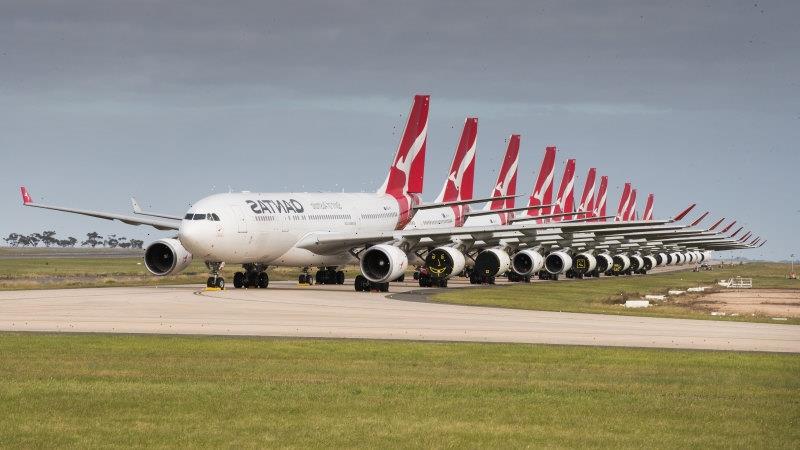A federal ban on Australians leaving the country will be dropped as soon as November under plans to end an extraordinary travel restriction and embrace a “vaccine passport” so travellers can prove they are allowed to cross international borders.
The plan could be announced within days after federal cabinet discussed the changes on Wednesday night in another step toward a travel pass linked to the Australian Immunisation Record that people can download to their phones after being fully vaccinated.
Australians could be allowed to leave the country as early as November.Credit:Jason South
While Australians have been forced to seek permission from the Department of Home Affairs to leave the country during the pandemic, federal ministers want to dismantle the restriction as soon as the vaccination rate reaches 80 per cent of people aged 16 and over.
Prime Minister Scott Morrison acknowledged last Friday that the international border could open for people leaving states that had reached the 80 per cent target even if other states had not, given that states such as NSW are ahead of others in vaccinations.
Trade Minister Dan Tehan insisted on Wednesday the international border restriction for outbound travellers would be scaled back once the target was reached, naming New Zealand, the Pacific and Singapore as destinations.
“The national plan makes very clear that once we hit that 80 per cent mark then outbound travel – travel by Australians overseas – will take place and also that we can put in place arrangements for inbound travel as well,” he said.
The steady increase in vaccinations suggests NSW and Victoria could reach 80 per cent in November, while Queensland and Western Australia could take until December.
The arrangements for international travel, with a vaccination record linked to passports, are separate from discussions about domestic systems to prove people are vaccinated so they can go to venues such as cafes, restaurants or cinemas.
The domestic systems will link the vaccination record to the QR code apps already in place in the states and territories in the hope the apps can give a visual signal, such as a green tick, when someone who is fully vaccinated enters a venue.
But this will require an upgrade to existing QR code apps and there are doubts about whether some states and territories can change their systems to add the Australian Immunisation Record. The federal government wants this to be done in a way that does not store someone’s vaccine status every time they enter a venue.
The Sydney Morning Herald and The Age revealed on Wednesday the federal government plans to issue international COVID-19 vaccination certificates from October and is in talks with other countries to work out which vaccines will be recognised.
The COVID-19 national security committee of federal cabinet discussed the travel pass on Wednesday night in a bid to get the system running by October, before easing the border ban.
A key principle is that the vaccines recognised for travel into Australia will be those approved by the Therapeutic Goods Administration, a stance that excludes options such as Sinovax and Sputnik. The TGA has approved AstraZeneca, Pfizer, Moderna and Johnson & Johnson.
The controls on Australians leaving the country will be applied by Australian Border Force officials in the usual way using the Australian Immunisation Record so people can prove they have been fully vaccinated, a requirement for departure.
The federal government is also signing up to an international app backed by the International Civil Aviation Organisation, an agency of the United Nations, using a “visible digital seal” as a global standard for proving vaccination.
Mr Tehan said this meant the Australian system would “seamlessly” join other countries.
The digital seal is a barcode that can be used to verify vaccination and other data when a passenger gets to a check-in counter or self-service kiosk. It uses public key cryptography to secure the information.
But there are doubts about global agreements on the vaccines to be recognised in the emerging system, with the International Air Transport Association, which represents 290 airlines, calling on the World Health Organisation last month to develop a global digital vaccine standard.
Stay across the most crucial developments related to the pandemic with the Coronavirus Update. Sign up to receive the weekly newsletter.
Most Viewed in Politics
From our partners
Source: Read Full Article

